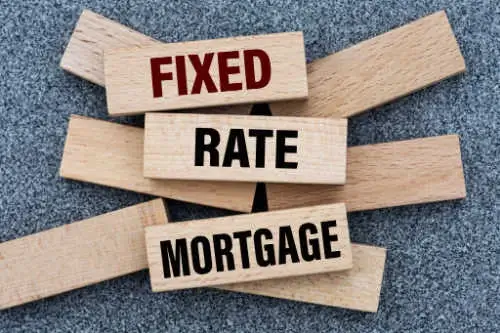
The most common home loan, by far, is the 30-year fixed-rate mortgage. It spreads out the principal and interest in an amortized pattern over three decades, allowing for manageable payments. It’s a good solid loan structure beloved by lenders and borrowers alike. However, it is not the only fixed-rate choice out there. The 15-year fixed-rate mortgage has plenty of benefits to offer as well.
What is a 15-year fixed-rate loan?
The name says it all: it is a mortgage loan with a term of 15 years at an interest rate that remains the same the entire time. These types of loans are available in different forms. In addition to conventional 15-year fixed-rate loans, the FHA, VA, and USDA all offer them as well.
The Benefits
-
Interest Savings – Perhaps the best reason for choosing this shorter loan, you can save tens of thousands of dollars in interest charges. For example, if you take out a loan for $300,000 at an interest rate of 6% for 15 years, you will end up paying roughly $156,000 in interest by the time you’re done. If you buy or refinance at the same price and rate but with a 30-year fixed-rate mortgage, your interest charges will more than double to $347,000. Going with the 15-year loan will save you more than $192,000 in that situation, money that you could invest or use for home renovations.
-
Quicker Equity - You build equity faster with a 15-year fixed simply because you are paying a greater amount toward the principal each month. This could be helpful when you are ready to sell as you’ll have a lot more equity to put towards your next home.
-
Full Ownership Sooner – with a 15-year loan you will also have full ownership of your property in half the time. This might be important to you if you are nearly retirement age and do not want to be paying a mortgage long after your income decreases.
The Drawbacks
-
Higher Payments – When you cut the time frame in half, you will have to pay a much larger amount each month. In the above scenario with a $300,000 loan at 6%, the principal and interest payment on a 15-year fixed-rate mortgage would be about $2,500 a month. With a 30-year loan, the payment would only be $1,800. That $700 monthly savings can make a big difference if you are a first-time home buyer or on a tight budget.
-
Less Liquidity - While you’ll build equity faster, your money will be tied up in your house. You’ll have less disposable cash for other financial goals and projects. Of course, you can take out a home equity loan or line of credit to use that money, but you’ll have to pay interest and closing costs just to access it.
-
Not Available for all Purchases - In some cases, depending on the size of your purchase and the amount of your down payment and assets, lenders may not be willing to make a 15-year loan to you. A 30-year fixed-rate may be easier to qualify for in that situation.
Qualifying for a 15-Year Fixed-Rate Mortgage
In order to qualify for a 15-year, lenders will want to see a good credit score and a low debt-to-income ratio.
Before you automatically sign up for a traditional 30-year mortgage, consider the benefits of a 15-year fixed-rate option for your next home loan.
If you or anyone you know is in the market for a home loan, give us a call today.
These materials are not from HUD or FHA and were not approved by HUD or a government agency.

